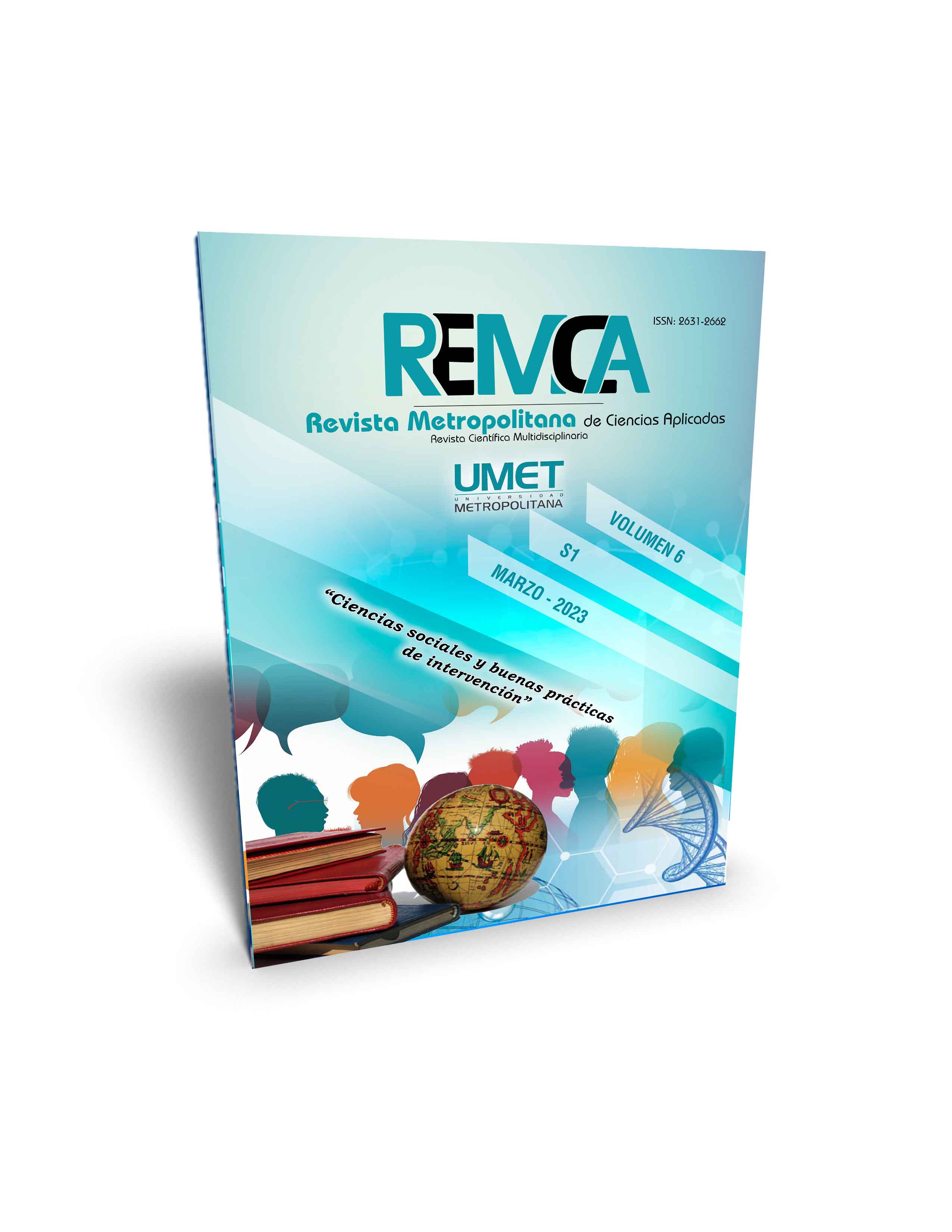The educational lag in Mexico: notes and reflections
DOI:
https://doi.org/10.62452/gqkyn623Keywords:
Educational lag, educational system, school dropoutAbstract
The article addresses the educational gap as one of the serious problems that affects the Mexican Educational System. This issue undoubtedly represents a need that must be completely eliminated. It also reflects on the seriousness of this issue and the influence of four agents that influence the eradication of this social evil: the state, the family, the school and the subject-student.
Downloads
References
Arancibia, V. (1995). Factores que afectan el rendimiento escolar de los pobres: revisión de investigaciones educacionales, 1980-1995. En, E. Cohen (ed.), Educación, eficiencia y equidad. (pp.157-213). CEPAL/OEA/Ediciones Sur.
Arango, L. G. (2006). Jóvenes en la universidad. Género, clase e identidad profesional. Siglo del Hombre Editores/Universidad Nacional de Colombia.
Bolívar, A. (2005). Equidad educativa y teorías de la justicia. REICE: Revista Electrónica Iberoamericana sobre Calidad, Eficacia y Cambio en Educación, 3(2), 42-69.
Bracho, T. (1990). Capital cultural: impacto en el rezago educativo. Revista Latinoamericana de Estudios Educativos, 20(2), 13-46.
Chile. Ministerio de Educación. (2023). ¿Qué se entiende por Rezago en el Programa de Reinserción Escolar? https://epja.mineduc.cl/que-se-entiende-por-rezago-en-el-programa-de-reinsercion-escolar/
Instituto Mexicano para la Competitividad. (2021). El rezago educativo pone en riesgo a una generación de estudiantes. http://imco.org.mx/el-rezago-educativo-pone-en-riesgo-a-una-generacion-de-estudiantes/#:~:text=De%20acuerdo%20con%20estimaciones%20del,a%201%C2%B0%20de%20secundaria
Martín-Barbero, J. (1998). Jóvenes: des-orden cultural y palimpsestos de identidad. Viviendo a toda. Jóvenes, territorios culturales y nuevas sensibilidades. En, H., Cubides, M. C. Laverde, y C. E. Valderrama (Edits). Viviendo a toda. Jóvenes, territorios culturales y nuevas sensibilidades. (pp. 22-37). Universidad Central -DIUC, Siglo del Hombre.
Mendoza, J. (2019). El rezago educativo. Un problema de construcción social. Revista Digital A&H, 6(11), 44-57.
Muñoz-Izquierdo, C. (2009). Construcción del Conocimiento sobre la Etiología del Rezago Educativo y sus Implicaciones para la Orientación de las Políticas Públicas: la Experiencia de México. REICE. Revista Electrónica Iberoamericana sobre Calidad, Eficacia y Cambio en Educación, 7(4), 28-45.
Perrenoud, P. (2008). La construcción del éxito y del fracaso escolar. Morata.
Popkewitz, T. (1998). La conquista del alma infantil: política de escolarización y construcción del nuevo docente. Pomares-Corredor.
Poy Solano, L. (2022). México: En rezago educativo, 28 millones de personas mayores de 15 años. https://www.lajornadamaya.mx/nacional/202792/mexico-en-rezago-educativo-28-millones-de-personas-mayores-de-15-anos
Rodríguez, R. (2013). Analfabetismo y rezago educativo. Seminario de Educación Superior. Universidad Nacional Autónoma de México. https://www.ses.unam.mx/publicaciones/articulos.php?proceso=visualiza&idart=1728
Ruiz, C. (2001). Factores familiares vinculados al bajo rendimiento. Revista Complutense de Educación, 12(1).
Rumberger, R. (2001). Why Students Drop out of School and What Can be Done. https://www.civilrightsproject.ucla.edu/research/k-12-education/school-dropouts/why-students-drop-out-of-school-and-what-can-be-done/rumberger-why-students-dropout-2001.pdf
Solís, P. (2017). Discriminación estructural y desigualdad social: con casos ilustrativos para jóvenes indígenas, mujeres y personas con discapacidad. Consejo Nacional para Prevenir la Discriminación.
Torres, R. M., & Tenti, E. (2000). Políticas educativas y equidad en México: La experiencia de la educación comunitaria, la telesecundaria y los programas compensatorios. Secretaría de Educación Pública/ Dirección General de Relaciones Internacionales.
Downloads
Published
Issue
Section
License
Copyright (c) 2023 Mercedes Santa Cruz-Vargas (Autor/a)

This work is licensed under a Creative Commons Attribution-NonCommercial-ShareAlike 4.0 International License.
Authors who publish in Revista Metropolitana de Ciencias Aplicadas (REMCA), agree to the following terms:
1. Copyright
Authors retain unrestricted copyright to their work. Authors grant the journal the right of first publication. To this end, they assign the journal non-exclusive exploitation rights (reproduction, distribution, public communication, and transformation). Authors may enter into additional agreements for the non-exclusive distribution of the version of the work published in the journal, provided that acknowledgment of its initial publication in this journal is given.
© The authors.
2. License
The articles are published in the journal under the Creative Commons Attribution-NonCommercial-ShareAlike 4.0 International License (CC BY-NC-SA 4.0). The terms can be found at: https://creativecommons.org/licenses/by-nc-sa/4.0/deed.en
This license allows:
- Sharing: Copying and redistributing the material in any medium or format.
- Adapting: Remixing, transforming, and building upon the material.
Under the following terms:
- Attribution: You must give appropriate credit, provide a link to the license, and indicate if any changes were made. You may do this in any reasonable manner, but not in any way that suggests the licensor endorses or sponsors your use.
- NonCommercial: You may not use the material for commercial purposes.
- ShareAlike: If you remix, transform, or build upon the material, you must distribute your creation under the same license as the original work.
There are no additional restrictions. You may not apply legal terms or technological measures that legally restrict others from doing anything the license permits.




